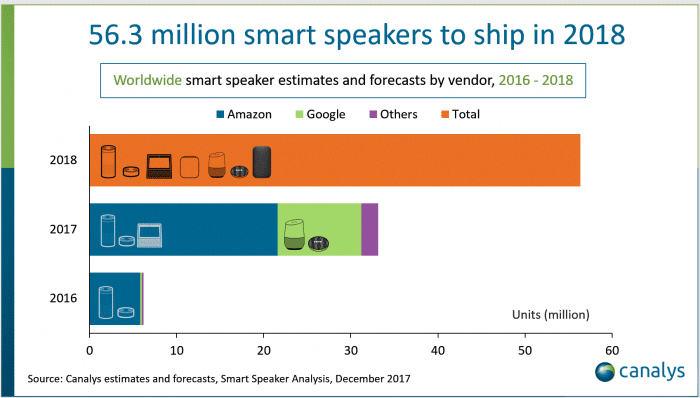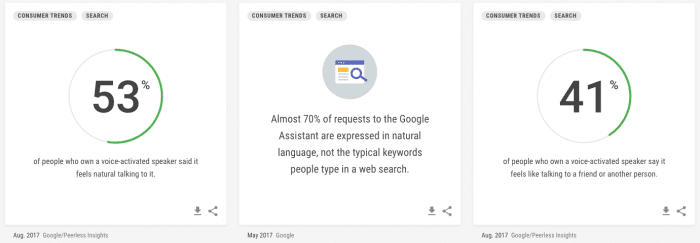Chart of the Day: Smart digital home assistants are the fastest-growing consumer tech with shipments to surpass 50 million in 2018
With many individuals and families starting 2018 with a new personal digital home assistant in their lives, this research highlights the likely future popularity of these new devices:

The research shows that in 2017, the Amazon Echo devices were the most popular, but with Google Home devices already accounting for around a quarter of sales; an impressive start since they weren't available throughout the year.
The prediction considers all the available options from the more established Amazon Echo variants, Google Home assistants, plus Apple's anticipated Home Pod and the Microsoft phone. Although the report is titled 'smart speakers' this is a bit of misnomer since Amazon recently released the Amazon Echo Show which still has speakers true, but is an Echo with a screen, for showing videos, feeds from cameras and additional information for voice queries. This Smart speaker review shows the range of digital assistants.
Marketing applications of smart speakers
From a marketing point-of-view, we're interested how these devices are going to affect consumer behaviour, in particular, increasing voice searches which will become important to understand for effective search engine optimisation. Some recent research from Google covers 5 ways digital voice assistants are shaping consumer behaviour. I'll dig into this insight soon, but in the meantime here is a snapshot of current smartphone usage.

The future appears rosy for smart digital assistants, “Consumer acceptance of the smart speaker has been positive overall, despite a few shortcomings,” said Canalys Analyst Vincent Thielke:
“Vendors have begun offering successful upgrades to their latest models, and a key element driving this stickiness are the smart home partnerships. Alexa’s multiple smart home integrations, Google’s partnership with Nest and Apple’s HomeKit initiatives will continue to excite consumers of the smart speaker and fuel sales in 2018.”
Research source








